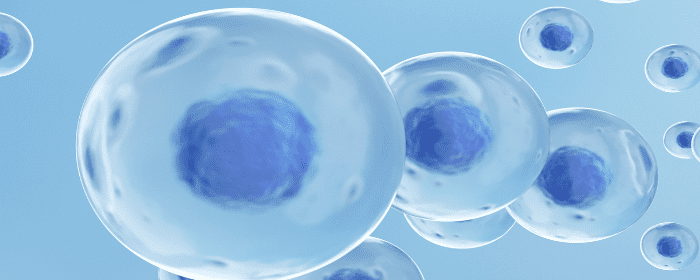Spinal cord injury (SCI) is a devastating pathological condition affecting motor, sensory, and autonomic function. Additionally, recovery from a traumatic SCI (TSCI) is challenging due to the central nervous system’s limited capacity to regenerate cells, myelin, and neurological connections.
While traditional therapeutic treatments have proven ineffective in assisting in recovery, mesenchymal stem cells (MSCs) hold significant promise for the treatment of TSCIs.
As part of this systematic review, Montoto-Meijide et al. analyze the efficacy, safety, and therapeutic potential of MSC-based cell therapies in TSCI.
Specifically, the authors identified 22 studies fitting the objectives of this review, which provided the information needed to analyze changes in AIS (ASIA Impairment Scale) grade; to study changes in ASIA sensory and motor score; to evaluate chances in neurophysiological and urodynamic parameters; to identify changes in neuroimaging tests; and to test for the existence of adverse effects of MSC therapy.
Typically occurring as a result of trauma related to accidents or falls, TSCIs consist of two phases, a primary and a secondary phase. Considering the progression of SCI from the primary to secondary phase, the development of a therapeutic neuroprotective approach to prevent secondary injury continues to be a priority in both clinical and basic research.
Considering this, MSCs are currently one of the most promising therapeutic options for TCI, primarily due to their capacity for neuronal differentiation and regeneration, as well as their anti-apoptotic, anti-inflammatory, and angiogenic properties.
The 22 studies analyzed as part of this review included 463 patients. When analyzed in terms of the objectives listed above, Montoto-Meijide et al. reported that in controlled studies patients who received MSC therapy improved their AIS by at least one grade, with most studies also demonstrating improvement in sensory cores and motor scores.
In terms of neuroimaging evidence, the authors reported decreased lesion cavity size and decreased lesion hyperintensity. In addition, one-third of trials reported mild or moderate adverse effects related to the route of administration, and no reported serious treatment-related adverse effects.
The authors of this review reported that their results were consistent with the findings of other recent meta-analyses conducted by other researchers and were also consistent with studies that used a large number of patients but were not included in their review.
In addition, the authors also raise several interesting points that required further study, including determining the ideal stem cell type to use, identifying the most effective route and dose of administration, and finding out which degree and stage of development of the TSCL is most receptive to MSC therapy.
While MSC therapy continues to demonstrate promising potential results, Montoto-Meijide et al. also highlight future potential therapies currently in development. These therapies include gene therapies, nanomaterials, and neurostimulation combined with rehabilitation; all three of these potential treatments have shown promise when used in patients with SCI.
Limitations of this review include the relative newness of cell therapy in TSCI made it difficult to find relative studies and most of the studies used did not have a control group, were not randomized, showed low methodological quality, and lacked detail about the process and/or patient follow-up. Considering this, the authors emphasize the need for multi-center, randomized, and controlled trials with larger numbers of patients over a long period of time as a way to draw firm conclusions regarding this therapy.
Montoto-Meijide et al. conclude the positive changes in AIS grade and in ASIA sensory and motor scores, in addition to the short- and medium-term safety of this therapy, demonstrate the potential benefit of MSC therapy in TSCI patients.
Source: Montoto-Meijide R, Meijide-Faílde R, Díaz-Prado SM, Montoto-Marqués A. Mesenchymal Stem Cell Therapy in Traumatic Spinal Cord Injury: A Systematic Review. International Journal of Molecular Sciences. 2023; 24(14):11719. https://doi.org/10.3390/ijms241411719


 St. Petersburg, Florida
St. Petersburg, Florida
